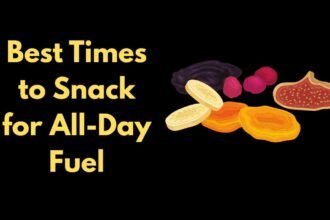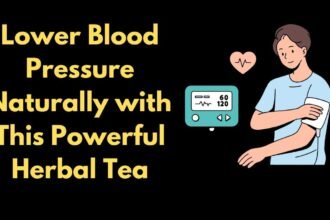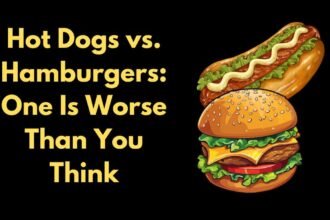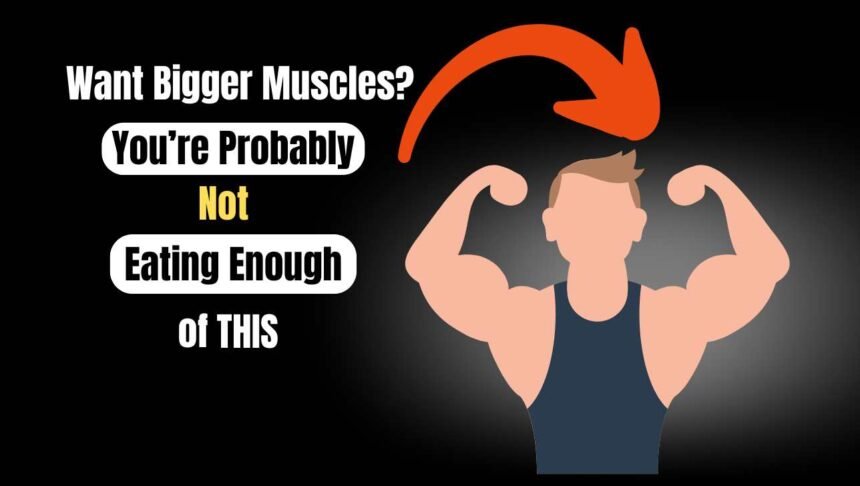It’s not enough to just lift weights to get strong muscles. Your body gets stronger because of what you eat, especially how much protein you eat.
Getting enough protein is one of the best ways to build muscle. Protein is important for growing muscle, and even a middle school student can understand why.
What Is Protein?
Another important food for your body is protein. The other two are carbs and fats. You can think of protein as the building blocks of the body.
You can use it to build, fix, and take care of your muscles, skin, hair, and even your organs.
Amino acids are the building blocks of protein. Muscles and the rest of the body use these amino acids as their “building blocks.”
Essential amino acids must come from food, while some amino acids can be made by the body.
How Does Muscle Building Work?
When you do strength training routines like squats, push-ups, or weightlifting, your muscle fibers get tiny tears. Don’t worry, it’s perfectly normal! In fact, these small tears are the first steps in building muscle.
When you work out, your body starts to heal itself. Muscle protein synthesis is the name for this process. The protein you ate helps your body fix those small tears in your muscles. That makes the muscles bigger and stronger than they were before.
That is, your body won’t have the “materials” it needs to finish this repair process if you don’t get enough protein.
Scientific studies back this up. Research published in the International Journal of Sport Nutrition and Exercise Metabolism and the Journal of Applied Physiology explains that protein intake is directly linked to muscle repair and growth after resistance training.
Why Essential Amino Acids Matter
Nine important amino acids must come from the food you eat. Your body can make some amino acids in itself. For muscle building, these essential amino acids are very important.
Complete proteins are foods that have all 9 of these important amino acids. Some examples are
- Eggs
- Chicken
- Fish
- Milk
- Greek yogurt
- Quinoa
- Soy products (like tofu or edamame)
Foods that aren’t complete proteins, like nuts, seeds, and beans, are still good for you, but they don’t have all 9 necessary amino acids. So many people mix different plant foods, like rice and beans, to get a full range of amino acids.
What Happens If You Don’t Eat Enough Protein?
If you don’t get enough protein, your body won’t be able to repair or build muscles properly. That means:
- Your muscles may feel sore for longer after workouts.
- You might not see progress in your strength.
- You could lose muscle instead of gaining it.
If you want to lose weight, this is even more important. So that people can lose fat, their bodies may begin to break down muscle for fuel. But getting enough protein can help keep your muscles healthy while you lose weight.
How Much Protein Do You Need?
The exact amount of protein you need depends on your age, size, activity level, and goals. But here are some general guidelines:
- General recommendation: 0.8 grams of protein per kilogram of body weight (for people who don’t exercise much)
- Active people or athletes: 1.2 to 2.0 grams of protein per kilogram of body weight
- People trying to build muscle: Often around 1.6 to 2.2 grams of protein per kilogram of body weight
For example, if you weigh 60 kilograms (about 132 pounds), you may need between 96 to 132 grams of protein per day if you’re actively trying to build muscle.
Best Times to Eat Protein
It’s not just how much protein you eat, but when you eat it that also matters.
Here are some good times to get your protein:
- After a workout: Eating protein within 30 to 60 minutes after exercising helps with muscle repair.
- Throughout the day: Instead of eating a lot of protein at once, try to spread it out. Aim to include protein in every meal—breakfast, lunch, and dinner.
- Before bed: A small protein-rich snack (like Greek yogurt or a glass of milk) before bed may help support overnight muscle recovery.
Easy Protein-Rich Foods for All Ages
You don’t need fancy supplements to get enough protein. Here are some everyday foods that are high in protein:
| Food Item | Protein (per serving) |
|---|---|
| 1 Egg | 6 grams |
| 1 Cup Greek Yogurt | 20 grams |
| 3 oz Chicken Breast | 26 grams |
| 1 Cup Lentils | 18 grams |
| 2 tbsp Peanut Butter | 8 grams |
| 1 Cup Quinoa | 8 grams |
| 1 Cup Milk | 8 grams |
These foods are easy to add to meals like sandwiches, smoothies, stir-fries, or snacks.
Do You Need Protein Shakes?
A lot of people like protein shakes, especially after working out. When you don’t have much time, they can be useful. They’re not magic, though. You don’t need to eat a lot of protein to get enough.
If you do use a protein shake:
- Look for one with at least 20 grams of protein per serving.
- Avoid added sugars and artificial ingredients.
- Use it to supplement your diet—not replace real food.
Conclusion: Protein Is Key for Muscle Growth
When you want to get stronger, protein is your best friend. It gives your body the tools it needs to stay strong, helps your muscles heal and grow after working out, and keeps them healthy while you lose weight.
You don’t need to make things too hard. Make sure you eat a healthy diet every day with enough protein. Spread out your meals and do strength training regularly to help your body use the protein you eat.
Remember that you don’t just build muscle in the gym—you build it in the kitchen too.




